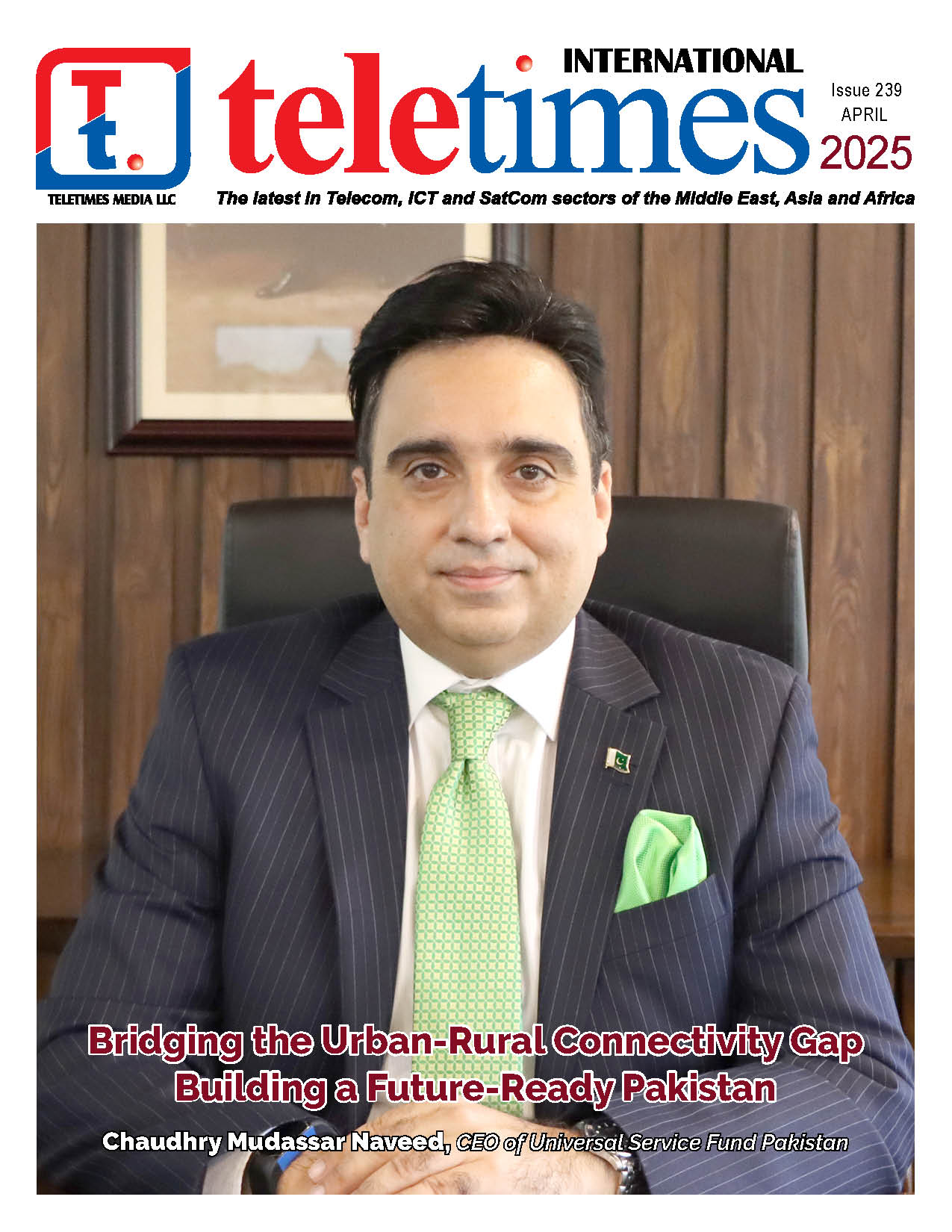Why the role of telecom operators will remain fundamental to socio-economic vitality in the post crisis
Post COVID-19, two realizations have been fully established: first, ICT infrastructure is critical to the overall functioning of our society, and, second, Telecom Operators have a central role to play in our lives, which goes far beyond offering simple connectivity services. The essence and the quality of the post-pandemic world of connectivity and the global socio-economic reboot will be greatly impacted by these realizations.
The new world of connectivity—while remaining in dire need of “Agenda for Action”, as recently promulgated by the UN Broadband Commission, and while still requiring momentum toward fulfilling the Connect 2030 Agenda goals—unequivocally also demands acceleration and implementation of new forms of multi-stakeholder cooperation in digital development. Achieving such cooperation would entail experimentation and developing a technology plus collaboration culture, for instance, to deal with natural disasters and health crisis situations in the future by leveraging ICTs and next-generation mobile broadband technologies. Seeing such cooperation manifest itself tangibly, however, would require witnessing how (and how soon) fifth-generation technology deployment is expedited, harnessed, and capitalized on.
The post COVID-19 world equally does demand thinking beyond short-term goals and taking forward what has worked well during the past two quarters in quarantine: For example, temporary spectrum allocations to meet emergency communication needs have worked very well. These temporary loans could be considered for permanent allocation. Regulators were quick to collaborate with Operators to meet common goals of public welfare, and thus alteration of some regulations, which foster further collaboration, could help Operators in provisioning faster broadband and higher-data usage services. This may be the best time to revisit taxation and industry fee structures, given the proven value that connectivity has displayed during these challenging months, with businesses and citizens almost entirely relying on the power of connectivity to maintain personal and operational sanity. A common stock-taking exercise among Regulators and Operators would reveal various other emergency measures taken over the past months, which could pave the way forward for improving the policy, regulatory, and business landscape, in general.
COVID-19 has substantiated that Regulators and Operators can indeed achieve milestones effectively and efficiently if larger goals are visible on the horizon, and that in the crisis situation an unanticipated albeit much-needed catalyst exists for accelerating ICT development progress, and for bringing together both like-minded and unlike-minded entities to collaborate on common agenda, including the implementation of 5G in a regionally harmonized and efficient manner. Some of the core impediments in 5G investments are closely linked to incentivization of infrastructure investments, spectrum and fiber deployment, and on creating relevant partnerships among terrestrial and satellite operators and other digital space players. Thus, the imperative remains for policy-makers and regulators to reconsider infrastructure regulations, spectrum policies, industry fees and taxation, incentives and competition policies to help accelerate 5G investments, while keeping current market sustainability needs and demands in check. Numerous use-cases of 5G, including but not limited to healthcare and educational service delivery, are waiting to be unearthed. In light of the current use of 5G and the proven benefits observed from it in some leading markets, e.g., in the containment of COVID-19 spread, it is essential that 5G be looked at from fresh perspectives.
Over the past quarter, in particular, Telecom Operators have mastered dynamic network traffic management and new use-cases and applications of technologies such as AI, robotics, among numerous others, have come to light. Many of these may fall in areas that hold tremendous potential for the digital vitality of our connected society, and for revenue-generation beyond 2020. By improving on existing automation and customer-service functions, and by focusing on the Edge for innovative business applications, for instance, Telecom Operators will continue to demonstrate their central role in digital progress.
As streaming content services, the use of social media outlets to stay informed of changes in the environs, video conferencing to deliver academic instruction and to remain connected on business matters, have risen exponentially, serving as both a challenge and an opportunity for Operators, a new set of expectations are being managed by Telecom Operators. These expectations rise manifold when seen in conjunction with the transformations being experienced in sectors such as Healthcare, Financial Services, Education, and others, with each striving in unconventional ways to transform and reset itself on the path to growth and sustainability. In such a situation, and looking forward, Telecom Operators will adopt new data-centric strategies to accommodate expected data influxes in the coming years.
Telecom Operators, in the post-pandemic world of digitization, nonetheless, will need to re-build market positions for business sustainability and for fostering innovation, and thus all efforts are being exerted toward capturing the full digital potential, including for enhancing profit margins. In efforts to keep pace with high data traffic, Telecom Operators, among other initiatives taken to improve customer experience and reduce financial burdens on customers via new data offerings and cost-savings, have also made network virtualization a priority step in mitigating high data influxes. This may well point to a new trend among Operators to extensively virtualize network functions to address data demands, and proceed ahead in building and capitalizing on fifth-generation digital infrastructure.
As we gradually exit the current health situation, extensive steps are expected from Telecom Operators in the SA-ME-NA region and elsewhere, in order to ensure business continuity for both day-to-day operations; to conduct self-assessment of mid to long-term impact of the pandemic across the revenue, service, and partnerships value-chains; to discover new ways of monetizing the digital customers’ new behavioral trends and sharp increases in the use of data; and to participate in the fulfillment of global ICT objectives. Aided by new collaboration-minded approaches and revamped decision-making cultures, from which objectives such as Resilient Connectivity, Affordable Access, and Safe Use of Online Services can be achieved, Telecom Operators should be better-equipped to create a new digital renaissance in the post COVID-19 world; a world where the currently persisting connectivity gap, due to which 2.7 billion people still remain unconnected, will have been overcome.
Overall, there is a need to rethink current business, financing and funding, as well as investment models. In doing so, the focus should not only be on making infrastructure available but also on addressing gaps in the meaningful use of connectivity provided. As Industry, we have a daunting task ahead of us, and SAMENA Council looks forward to assisting in fulfilling this task with its resourcefulness and commitment to facilitating the Industry and its leaders. SAMENA Council’s upcoming 5G-powered Leaders’ Summit 2020, with the spirit of bringing the industry leadership together on a common platform, under a common agenda, following months of seclusion and coronavirus-dictated routine, will help foster acceleration of digital cooperation-building not only within the Telecom Industry but with other industries as well.












